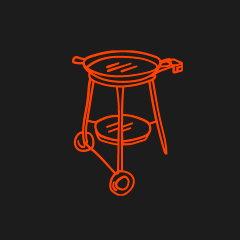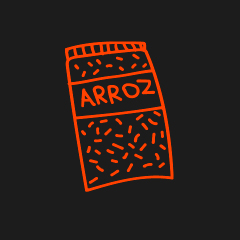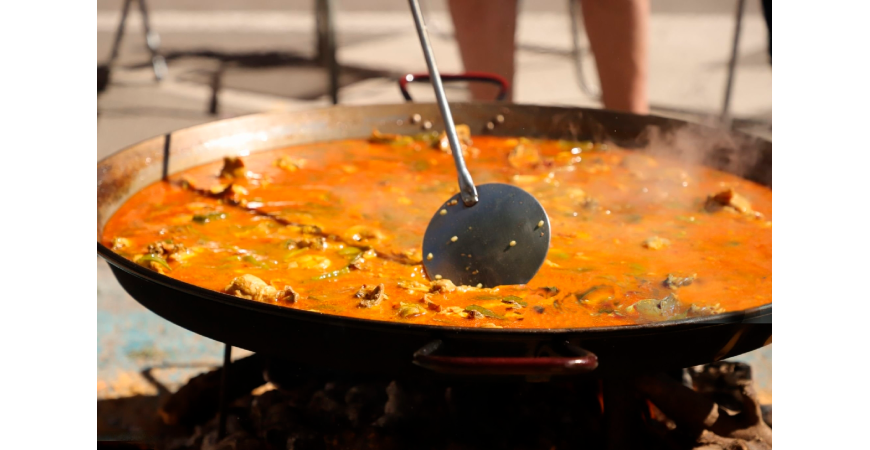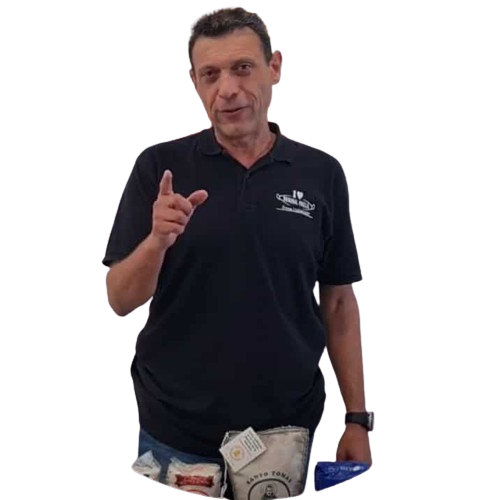How does altitude and climate affect the cooking of paella?
There are many factors that can influence the final result of our paella: what kind of rice we are using, the ingredients, whether we have added more or less broth... but what if I tell you that there is a factor that perhaps you have never thought about? The altitude and climate when you make the paella can affect the final result. Yes, you heard me right.
At first glance, saying that altitude or climate affects paella may sound a bit strange, but there is scientific evidence that shows that altitude affects paella cooking time.
This has a great relationship with the famous myth that Valencian paella has to be made with Valencia water. I remember, talking with the rice master Carlos Gomez Senent, that he defined this situation as "The excuse for Valencia's water is the excuse for bad rice."
And this has a lot to do with the famous myth that when a Valencian rice master leaves Valencia to cook paella and it doesn't come out good, the water is always to blame. The reality is that the hardness of the water hardly affects the cooking times. and there the master rice cook Quique Dacosta did a great job with the University of Valencia to end up concluding that the origin of the water was not a determining factor in the cooking times of the rice.
Otherwise we would surely have thought about selling bottled Valencia water to make paellas, it would be very profitable but unethical. Which by the way is a trademark registered by someone we know.
What does happen when you leave your environment is that you will probably find a paella of a different size, which you may not be used to, with a different burner that you may not know or with a type of combustion wood. medium that is not like that of the orange tree and, above all, with a height above sea level that does significantly affect the boiling temperature and thus the times that the rice requires for correct cooking.
In this blog post we are going to explain how this phenomenon happens and how to take it into account when making paellas.
Why does the height affect the cooking of paella?
Question for the class: Why is it that the higher the altitude, the longer it takes to cook something and vice versa?
The answer is because, the lower we are, the greater the weight of the column of air that we have above us, which translates into greater pressure and vice versa, the higher we are, the weight of the column of air will be lower and therefore the pressure it will exert on the boiling water will also be lower so the water will boil more easily and at a lower temperature.
This lower temperature will affect the cooking of the rice, significantly lengthening the cooking times of the rice. It is logical, since if we are, for example, in Valencia, at sea level, the water boils at 100 ºC and, if for On the contrary, if we were in Avila or Segovia, which are located at 1,000 meters above sea level, water boils at 96.5 ºC, which would translate into more than 3 extra minutes to reach exactly the same cooking point of the rice.
How do we calculate the difference in altitude?
The measurements necessary for this calculation are the following: If we assume that there is an almost linear relationship between height and the boiling time of water, we can estimate that there is a difference of 1 additional minute for every 300 meters of height.
That is, a paella at sea level would take us 16 minutes, if we went up 300 meters, it would take us 17 minutes and so on.
We can transform this height measurement into millibars, 300 meters would be 33 mb, which means that every 33 mb that we add or subtract will modify 1 minute of the cooking time of our paella.
Of course, it is not only the altitude that modifies the cooking time, the climate in which we make our paella can also modify the cooking time.
How does the storm affect the cooking of paella?
The climate can affect us in 2 ways: high or low atmospheric pressures.
Based on standard conditions, if we were under common anticyclonic conditions, which are 1013 mb to 1030 mb, it would imply that the paella would be made around 30 to 35 seconds later than normal.
Otherwise, the change can be much more notable. Suppose we have a tropical storm, this implies that the pressure can drop by 980 mb. If we assume that the drop is around 25 mb, this would be almost 1 minute less cooking to obtain the same degree of doneness of the rice.
In other words, in times of storm, keep an eye on your paella.

How do we determine the standard sea height?
Known as “zero elevation”, it is the standard measurement used to calculate height based on sea level. It is this measurement that different maps use to calculate the altitude that exists between different cities and topographical features.
The best way today to know the altitude of your position is to look for a map that indicates the altitude of your country or place of residence, this way you can obtain an estimate more easily.
Even so, don't worry, we make this process even easier for you.
Paella cooking table by sea height
If you don't want to have to mess with the calculator to find out what is the optimal cooking time for paella depending on where you are, you can use the following table to get an approximate of the time needed.
The table was made using a linear interpolation formula, adjusting the cooking time based on the range of different altitudes.
All you need to do is look up the meters above sea level of your location and compare, so you will know how much extra time your paella needs to be perfect.
|
Altitude (Calculated in meters) |
Increased cooking time (Calculated in percentage) |
Time to make the paella (Minutes and seconds) |
Boiling point of water (Calculated in degrees Celsius) |
| 0 | 0.0 | 15.0 | 100 |
| 300 | 7.1 | 16.1 | 99 |
| 600 | 14.2 | 17.1 | 98 |
| 900 | 21.3 | 18.2 | 97 |
| 1200 | 28.4 | 19.3 | 96 |
| 1500 | 35.5 | 20.3 | 95 |
| 1800 | 42.6 | 21.4 | 94 |
| 2100 | 49.7 | 22.5 | 93 |
| 2400 | 56.8 | 23.5 | 92 |
| 2700 | 63.9 | 24.6 | 91 |
| 3000 | 71.0 | 25.6 | 90 |
| 3300 | 78.1 | 26.7 | 89 |
| 3600 | 85.2 | 27.8 | 88 |
| 3900 | 92.3 | 28.8 | 87 |
The table has been made using a linear interpolation formula, adjusting the cooking time based on the range of different altitudes.
We hope that this brief entry will ensure that your paella turns out perfect, wherever you are, there are no more excuses, rice lovers!






